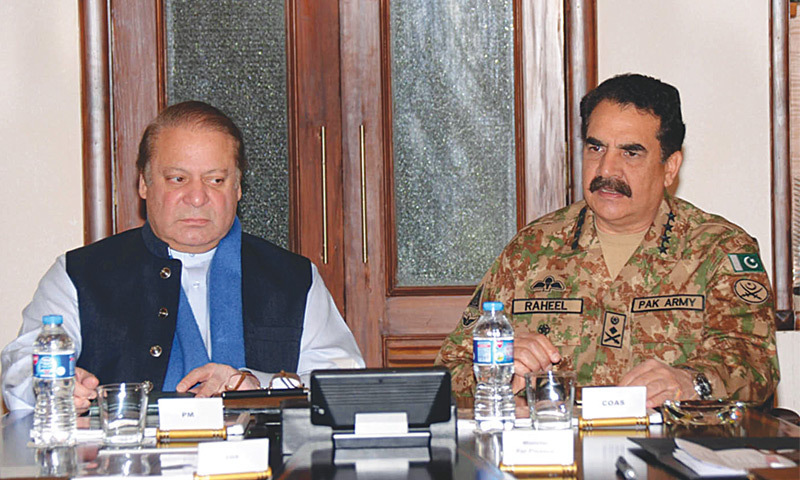“The Ministry of Interior has removed from the Exit Control List (ECL) the name of Cyril Almeida, the Dawn journalist whose story on a high-profile security meeting has forced the government to initiate an inquiry to identify the person responsible for its leak.” (Dawn Newspaper, 15/10/16)
Comment:
Pakistani secularists this past week have been stunned by the temporary inclusion of the well-known Dawn newspaper journalist and columnist Cyril Almeida, a Christian Roman Catholic, on Pakistan’s no-fly list. His crime has been to reveal details of a private meeting between top civilian and military officials, presided over by Prime Minister Nawaz Sharif.
According to Almedia’s well-checked account, Nawaz Sharif has been able to manoeuvre the military into a position of weakness, citing growing international isolation because of military policy, and forcing them to acknowledge civilian supremacy in domestic security matters.
Nawaz Sharif was forced to issue strong denials and move quickly against Almeida as unwanted publicity of these latest government tactics could still bring a backlash from the army. Indeed, as Almeida’s description of the meeting makes clear, Nawaz Sharif was very careful during the session not to show any personal disrespect of the army.
Pakistan is facing a situation that increasingly exists in many other Muslim countries also – multiple American agents that are maintained in conflict with one another. With the dramatic rise of Islamic consciousness within the Muslim Ummah, America cannot trust any one of its agents to have full control of a Muslim country. So instead America patronises different factions simultaneously, achieving something from each faction to act as a check on the others.
In Pakistan, both army and government are pro-American; despite opening links to China, and now Russia, Pakistan’s political and military leadership cannot think of functioning outside of the American sphere. So they each toe the American line, while attempting as best as they can to preserve their own institutional interests.
Raheel Sharif was able to achieve dominance over the government for most of his period of office by winning America’s favour over the Zarb-i-Azb operation against so-called militants in the tribal areas. America has rewarded the army in return recently by eliminating anti-Pakistan elements in Afghanistan, such as Hafiz Saeed Khan in August 2016, an IS leader who posed a threat to Pakistan.
However, the army has been slow to move against anti-Indian elements within Pakistan, because of the army’s deep mistrust of India. Here, it has been the government of Nawaz Sharif that has made most of the progress in attempting to normalise relations with India while ignoring India’s brutal occupation of Kashmir. So America finds the government useful to implement some of its policies while the army is useful for others.
The timing of Nawaz Sharif’s current move against the army is of little surprise. The government has been facing pressure from the army for intervention in Nawaz Sharif’s core political constituency of Punjab. But Raheel Sharif is due to retire next month, so he is at his weakest right now. Nawaz Sharif must act before the next chief is installed and is able to consolidate the institution behind his leadership.
Sadly, missing in all these machinations are the interests of the Muslims of Pakistan, whose fathers were misled into participating in the movement to create Pakistan thinking that they were founding a true Islamic State. All they ended up with was a British-colonial system run by American-controlled agents. These agents trade their own interests against America’s. By following American policies, they hope to win more for themselves. Nawaz Sharif has the grand prize of the $50 billion plus China-Pakistan Economic Corridor to cream untold corruption money off; he needs to stay loyal to America to ensure this is not disrupted. And the army continues to suckle its generals on multi-billion-dollar military aid from the U.S.
The Muslims of Pakistan must realise that the present system can never deliver results, except those desired by America. Establishing the righteous Khilafah is being presented in Pakistan as a fictional enterprise. But if the people of Pakistan really want it, then what can stop them?
Faiq Najah

